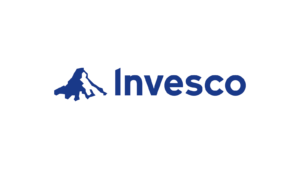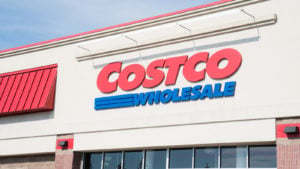
If you’re curious about the legitimacy of WallStreetBets stock picks, you’ve come to the right place. Three of the worst WallStreetBets stock picks you can own are GameStop (NYSE:GME)., Trump Media and Technology Group (NASDAQ:DJT), and AMC Entertainment (NYSE:AMC). The three meme stocks had 14, 14, and three mentions over the past 24 hours preceding June 1.
While the WSB community discusses many poor-quality stocks, it also discusses a number of great companies. For example, the number one WSB stock by mentions in the past day at the time of writing is the SPDR S&P 500 ETF Trust (NYSEARCA:SPY), with 244 mentions, almost 100 more than the second-place stock, Nvidia (NASDAQ:NVDA).
That’s an excellent business, and if you hold it for 3-5 years or more, you’ll likely make money on the AI game-changer. However, the WSB investor community has discussed other good businesses.
Here are three other WallStreetBets with excellent potential for massive gains. To keep it interesting, I’ll keep my suggestions outside the Magnificent Seven.
WallStreetBets Stock Picks: Visa (V)

Visa (NYSE:V) had the third-highest mentions over the past 24 hours, with 82, which was 57% less than the previous day.
The company is one of the world’s leaders in digital payments. You would have to live in a cave not to know its name. During fiscal year 2023 (September year-end), Visa processed 213 billion payments and cash transactions under its brand.
In Q2 2024, it generated $8.8 billion in revenue, 10% higher year-over-year, and $5.1 billion in non-GAAP earnings, 17% higher than Q2 2023. It processed 72.08 billion transactions during the quarter, with debit accounting for 66% and credit for 34%.
The company continues to be shareholder-friendly, returning $3.8 billion in capital to shareholders in 2023 through dividends and share repurchases. Over the past decade, it’s reduced its share count by nearly one-fifth. As Warren Buffett often says about share repurchases, your ownership position grows without investing a single new dollar in the company.
Over the past three years, Visa has grown its revenue and net income on an annualized basis by 14.34% and 16.71%, respectively. Despite a corporate history that dates back 66 years, it’s still growing by double digits.
While Visa only generated an annualized total return of 6.90% over the past three years, its return over the past 15 years is nearly three times higher. It’s due for better returns.
Invesco NASDAQ 100 ETF (QQQM)

The Invesco NASDAQ 100 ETF (NASDAQ:QQQM) wasn’t mentioned, but its stablemate, the Invesco QQQ ETF (NASDAQ:QQQ), was. QQQ had the fourth-highest mentions over the past 24 hours at the time of writing, with 64, 33% less than the previous day.
I said I wouldn’t recommend one of the Mag 7. I didn’t say I couldn’t pick an ETF that holds one or more of them. QQQM tracks the performance of the Nasdaq-100 Index, a collection of 100 of the largest non-financial companies trading on the Nasdaq.
Although QQQ has existed since March 1999, QQQM was only launched in October 2020 to allow buy-and-hold investors to own the index at a lower cost — 5 basis points cheaper at 0.15%- and with an ETF structure rather than a unit trust. This allows QQQM to reinvest dividends and lend its stock to short sellers.
All seven of the Mag 7 are in the ETF’s top 10 holdings, which account for 49% of its $26 billion in net assets. The two stocks not part of the Mag 7 and in the top 10 are Broadcom (NASDAQ:AVGO) and Costco (NASDAQ:COST), my third pick.
There is no question that QQQM is a tech-focused fund, with nearly 59% of the net assets allocated to this sector. The next two sectors with the highest weight are consumer discretionary (17.9%) and health care (6.29%).
The downside of QQQM is that it’s not nearly as liquid. However, its 30-day average daily volume of 1.58 million is plenty should you need to sell some shares quickly.
If you want Mag 7 stocks without as much risk, QQQM is a good option. Kudos to WSB members for understanding this.
Costco (COST)

Costco had the 19th-highest number of mentions over the past 24 hours, with 10, which was 85% less than the previous day.
The late Charlie Munger thought the membership-based warehouse discount retailer was the greatest business. Sure, he served on the board for 26 years, from 1997 until his death last November, but he believed in its business model.
“‘I love everything about Costco,’ Munger said during The Daily Journal’s annual shareholder meeting back in February, ‘I’m a total addict, and I’m never going to sell a share,’” Yahoo Finance reported shortly after Munger’s death.
How often do you hear a corporate director in an S&P 500 company talk that way about the company whose board he sits on? Very few, but Munger always spoke his mind, so when he said something, if you were smart, you listened and followed his lead.
I’ve been a big believer for years. I don’t think I’ve ever encountered a miserable Costco employee. They’re always smiling as they go about their work days, which isn’t easy given how many customers they check out daily. You can’t fake that enthusiasm. It’s contagious.
Of course, there is the business model, which strives for the lowest prices possible while making most of its profit from annual membership fees.
Further, in 2023 (September year-end), its revenue from membership fees was $4.58 billion, or 73% of its $6.29 billion in net income. In 2013, its revenue from membership fees was $2.29 billion, or 112% of its net income. That’s a compound annual growth rate of 7.2% over the past decade.
What’s not to love?
On the date of publication, Will Ashworth did not have (either directly or indirectly) any positions in the securities mentioned in this article. The opinions expressed in this article are those of the writer, subject to the InvestorPlace.com Publishing Guidelines.






